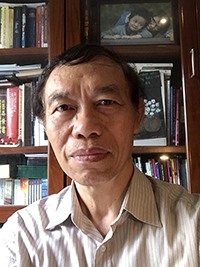 Life & Style
Life & Style

Experts are always concerned about how to best manage the preservation and development of heritage and relic sites. Architecture Lê Thành Vinh, former head of the Relics Preservation Institute spoke about heritage the preservation of relic sites.
 |
| Architecture Lê Thành Vinh |
Experts are always concerned about how to best manage the preservation and development of heritage and relic sites. Recently, Lương Xá Temple in Liên Bạt Commune, Hà Nội, has been renovated with concrete. The temple was built in the 17th century with beautiful engravings representing northern architecture.
Architecture Lê Thành Vinh, former head of the Relics Preservation Institute spoke about heritage the preservation of relic sites.
This is not first time a temple has been destroyed in the renovation process. What is you opinion about Lương Xá Temple?
I think it is an accident because local people didn’t intentionally destroy the temple. They want to use their money to make the temple more beautiful. But their way is not suitable for the preservation of relics. The media said that they destroyed the temple, but they didn’t. Personally, I regret it.
However, I think we should consider this case from another angle. Local people are aware of protecting their temple. They did not want to destroy it and should be not criticised
What do you think led to Lương Xá Temple being concreted?
I know of many incidents worse than Lương Xá Temple. All follow the same script. When a relic site in a commune needs to be renovated the commune authority will ask permission from the district authority. A district official will meet and work with the commune authority and say nothing. Then he will return and type up an official document and send it to the commune authority.
According to the document, the relic site will be put on a list saying the commune wants to repair or upgrade the site. The district authority will consider the commune’s proposal and submit it to a higher level for guidance. But if the commune officials think it will take too much time for approval, they will go ahead.
Obviously, the commune officials are wrong to carry out the work without approval. I think there needs to be stronger co-operation between district and commune officials to avoid these issues.
Lương Xá Temple is about one kilometre from Ứng Hòa District People’s Committee. But the district authority didn’t know that the temple was being rebuilt. I think this is very bad. The commune officials know little about heritage and the higher level officials don’t work effectively.
The stories on the preservation of relics show that district officials play an important role in the process. When the commune officials propose a plan to renovate relic sites they haven’t yet ruined the relics.
What can cultural managers do to protect relic sites?
Both cultural managers and the community should be aware of heritage value. The relic managers take responsibility and help people increase their knowledge about heritage value. The managers should be ready to co-operate with local people to meet their demands.
We should also define management rules, designed more clearly by the State, for each level, agency and individual in the system engaged in protecting relic sites. In other words, the management system needs to be more effective.
Concerned agencies should take more care about protecting and preserving relic sites. The managers should encourage people to get involved in preservation. Hội An, in the central province of Quảng Ngãi, is a good example. People in Hội An are willing to protect their heritage thanks to effective management. Heritage protection in Hội An is more difficult than anywhere because each house is part of the country and town’s history. — VNS




